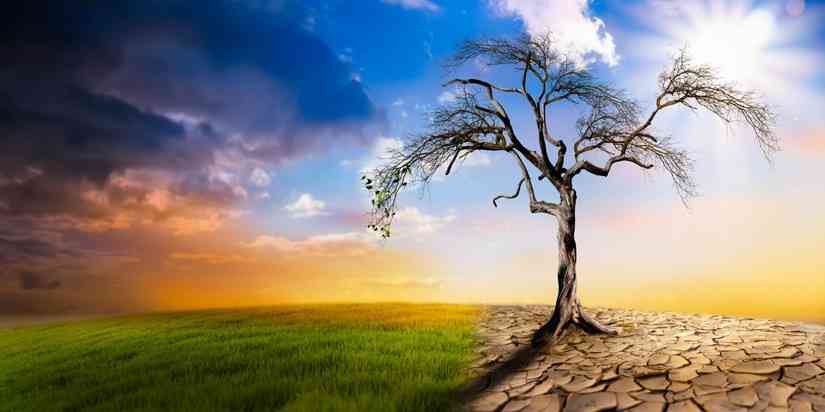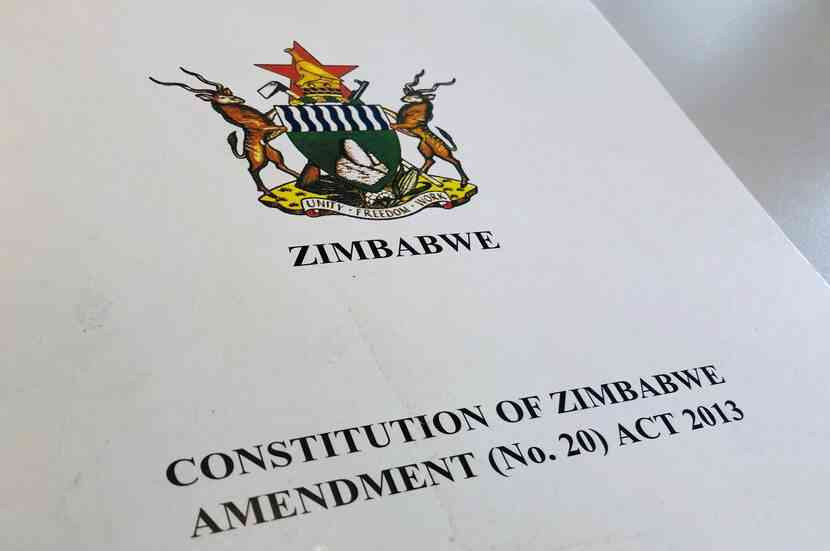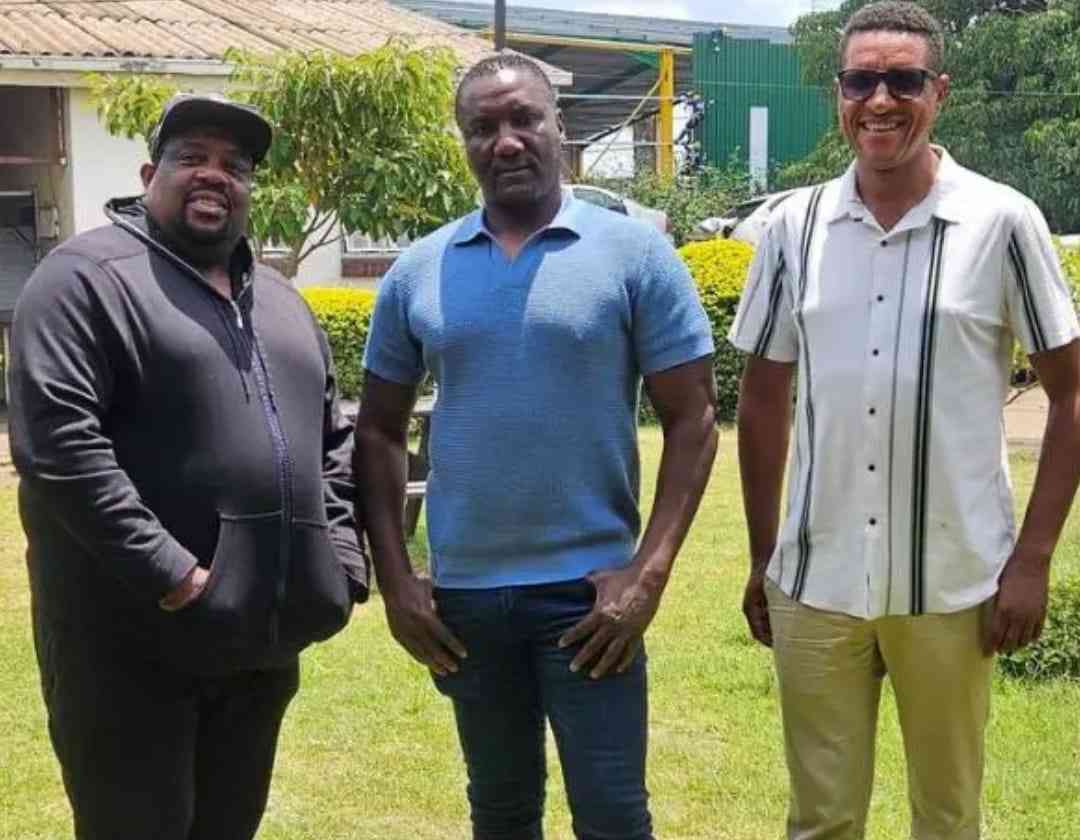
Climate change is not an abstract concept for Zimbabwe—it is an unfolding daily reality.
Rising temperatures, prolonged droughts, unpredictable rainfall and recurring floods are eroding livelihoods, deepening hunger and placing unbearable strain on fragile health systems.
The climate crisis, at its core, is also a justice crisis.
Communities that contribute the least to global emissions—Zimbabwe included—are facing the steepest costs, while wealthier nations in the Global North delay meaningful action and withhold promised resources.
Today, Zimbabwe’s cry for climate justice and health equity must be treated with urgency, not as charity but as a matter of global responsibility.
Climate change is intensifying Zimbabwe’s existing health challenges.
Prolonged droughts drive malnutrition by reducing crop yields, while floods and cyclones increase outbreaks of waterborne diseases such as cholera and typhoid.
In 2019, Cyclone Idai devastated parts of eastern Zimbabwe, leaving over 340 000 people in need of assistance and triggering a public health emergency due to damaged sanitation infrastructure.
- Matiza’s widow in estate wrangle
- SA insurer targets Zim after US$2.4 million payouts
- Addressing climate change the green building way
- Hit hard by storms and forest loss, Zimbabweans building stronger homes
Keep Reading
The warming climate is also expanding the range of vector-borne diseases.
Malaria, once limited to low-lying regions, is now creeping into highland areas.
Heat stress exacerbates chronic illnesses, while extreme weather disrupts already fragile healthcare services.
Rural clinics, often underfunded and lacking adequate resources, are forced to respond to overlapping crises with limited capacity.
The cumulative effect is a widening health equity gap: the poor, rural, and marginalised—especially women and children—bear the heaviest burdens.
The principle of climate justice rests on equity: those who caused the crisis must bear the greatest responsibility for addressing it. Yet, developed nations have consistently failed to deliver.
At COP15 in Copenhagen (2009), the Global North pledged US$100 billion annually in climate finance by 2020 to support adaptation and mitigation in vulnerable countries.
This promise remains unfulfilled, with only fragmented funds trickling in, often tied to restrictive conditions or delivered as loans that increase debt burdens.
For Zimbabwe, the lack of accessible climate finance translates into delayed adaptation measures, overstretched disaster responses, and insufficient investment in resilient health systems.
Foreign aid earmarked for health and development has also stagnated or been frozen due to political concerns, leaving millions without essential support.
This selective withholding of aid, while emissions from wealthy nations continue unabated, epitomises the double injustice at play.
Climate justice cannot be separated from health equity. The World Health Organisation estimates that climate change could cause an additional 250 000 deaths annually between 2030 and 2050 due to malnutrition, malaria, diarrhea, and heat stress.
For Zimbabwe, these projections translate into more rural mothers losing children to preventable diseases, more young people unable to pursue education due to illness, and more communities trapped in cycles of vulnerability.
Health equity demands that adaptation funding prioritise healthcare infrastructure, early warning systems, nutrition support, and community-based resilience strategies.
Equitable funding could enable Zimbabwe to build climate-resilient clinics, stock essential medicines, expand water and sanitation systems, and train health workers to manage climate-related health threats.
Other countries in the Global South illustrate both the dangers of inaction and the possibilities of justice-centred interventions.
Bangladesh has become a global example of community-driven adaptation.
Despite facing recurrent cyclones and flooding, it has invested heavily in disaster preparedness, early warning systems, and cyclone shelters.
These investments, supported by international financing, have dramatically reduced cyclone-related deaths compared to past decades.
Zimbabwe could similarly strengthen localised disaster responses if resources were unfrozen and equitably distributed.
Kenya is integrating climate adaptation with health systems by investing in climate-smart agriculture and nutrition programmes to counter food insecurity.
For Zimbabwe, which faces frequent droughts, adopting and scaling similar programs would address both climate and health vulnerabilities simultaneously.
Pacific Island nations, such as Fiji and Vanuatu, have persistently called out the Global North for climate inaction and secured portions of the Green Climate Fund for relocation and adaptation projects.
Their advocacy underscores that small states can push the international community to honor commitments.
Zimbabwe’s diplomatic voice, aligned with other African nations, can amplify this call
The Global North’s reluctance to unfreeze aid and fulfill climate finance pledges is not only morally indefensible but also short-sighted.
Climate change does not respect borders. Rising temperatures in Zimbabwe destabilise food systems that are linked to regional trade; public health crises like cholera outbreaks risk spreading beyond borders.
Migration pressures, conflict over scarce resources, and economic instability will inevitably ripple into the global economy.
By withholding aid and delaying climate action, wealthy nations are effectively mortgaging the future of vulnerable populations for short-term political convenience.
Unlocking resources is not about generosity but about rectifying historical injustices and safeguarding collective security.
For Zimbabwe to secure climate justice and health equity, several actions are urgent:
- Unfreezing and scaling up climate finance: Wealthy nations must deliver on the US$100 billion pledge, ensuring funds are accessible, predictable, and grant-based—not debt-creating loans.
- Prioritising health in climate adaptation: Funding must strengthen healthcare systems, including rural clinics, disease surveillance, and nutrition programmes, recognising health as central to climate resilience.
- Supporting localised solutions: Community-based approaches—such as farmer-led climate adaptation, women’s cooperatives, and indigenous knowledge systems—should receive funding and recognition.
- Enhancing regional solidarity: Zimbabwe should continue collaborating with African peers to push for collective climate justice demands in global negotiations, amplifying its moral voice on the international stage.
- Holding polluters accountable: The Global North must not only provide finance but also accelerate decarbonisation, ending the cycle of promises without action
Zimbabwe’s urgent call for climate justice and health equity is not merely a plea for assistance—it is a demand for fairness in a deeply unequal global system.
Vulnerable communities cannot continue paying for a crisis they did not create, while the Global North clings to resources and delays obligations.
Examples from Bangladesh, Kenya, and Pacific Island nations show that with adequate support, vulnerable countries can build resilience and protect health.
The moral compass of our global community will be judged by whether wealthy nations rise to this moment: unfreezing aid, fulfilling commitments, and ensuring that no child, no mother, no community in Zimbabwe—or anywhere—suffers simply because justice was denied.











